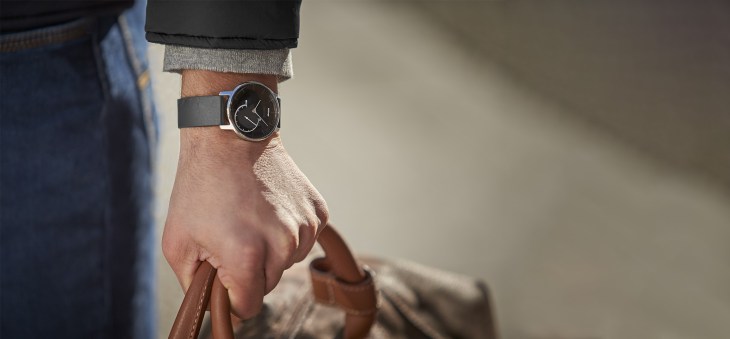Nokia’s history as the world’s biggest mobile phone maker is becoming a distant memory, but it’s not out of the gadget business just yet. To build out its health technology business, the company today announced that it has acquired Withings, makers of smart scales, activity trackers, and other health gadgets. Withings is based out of France, and with Nokia in Finland, the transaction was in euros: €170 million to be exact, or around $192 million in U.S. dollars.
The deal is expected to close in Q3 of this year, with Withings becoming a part of Nokia Technologies. It’s a decent return: Withings had raised just under $34 million, with investors including BPIFrance, Idinvest, Ventech and 360 Capital Partners.
The deal is not only a sign of how Nokia still very much believes it more to do in the world of gadgets, but a sign of how the company is going back to its early playbook of building vertically integrated businesses. In this case, buying Withings is not just about the health trackers, blood pressure monitors, thermometers and other objects that consumers will buy, but the bigger business of connecting them and running a wider array of cloud-based services under the hood — otherwise known as the Internet of Things.
“We have said consistently that digital health was an area of strategic interest to Nokia, and we are now taking concrete action to tap the opportunity in this large and important market,” said Rajeev Suri, president & CEO of Nokia, in a statement. “With this acquisition, Nokia is strengthening its position in the Internet of Things in a way that leverages the power of our trusted brand, fits with our company purpose of expanding the human possibilities of the connected world, and puts us at the heart of a very large addressable market where we can make a meaningful difference in peoples’ lives.”
Notably, this is the first acquisition in years at Nokia that’s focused on consumer tech: the last several, including the ingestion of Alcatel-Lucent, have been about building out its mobile back-end and networking businesses.
It’s also a smart move for another part of Nokia’s remaining business: its patents. Nokia may not be making as many new waves in mobile phone patents today as it did years ago, and while it continues to milk those for royalties with companies like Apple, Withings, it says, “will also ensure the ongoing renewal of Nokia Technologies’ world class IPR portfolio.”
While IoT is a very low-margin business compared to other digital consumer services like mobile phones, Nokia notes that healthcare is one of the big opportunities, citing analysts’ forecasts of market CAGR of 37%, making it “the fastest growing health care segment from 2015-2020.”
It’s also an acquisition that is tapping into another trend: we’re living longer and getting more and more conscious of our health, and in some cases we’re not actually getting healthier, with weight issues affecting a lot of our sedentary population, and other illnesses like diabetes growing in prevalence because of wider changes in our diets.
Withings was co-founded by Eric Carreel and Cedric Hutchings in 2008, both of whom appear to be joining Nokia. It employs 200 people in France, the U.S. and Hong Kong.
“Since we started Withings, our passion has been in empowering people to track their lifestyle and improve their health and wellbeing,” said Cédric Hutchings, CEO of Withings. “We’re excited to join Nokia to help bring our vision of connected health to more people around the world.”
For its part, it’s interesting that Withings decided to sell, and to sell to a European tech giant that essentially is a non-player in the activity tracking/health tech business. In the wider market, there may still be question marks over the wider potential for connected devices like activity trackers. Companies like Fitbit have been growing, but slowly. Others like Jawbone have seen their valuations slashed while waiting for the market to really take off.
The question now is whether Withings under Nokia will tap into what’s already out there in terms of consumer interest, or whether they have what it takes to supercharge and lead it.
